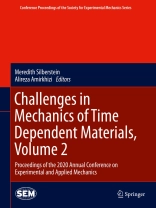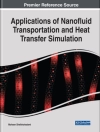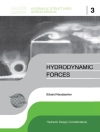Challenges in Mechanics of Time-Dependent Materials, Volume 2 of the Proceedings of the 2020 SEM Annual Conference& Exposition on Experimental and Applied Mechanics, the second volume of seven from the Conference, brings together contributions to this important area of research and engineering. The collection presents early findings and case studies on fundamental and applied aspects of Experimental Mechanics, including papers in the following general technical research areas:
Characterization Across Length Scales
Extreme Environments & Environmental Effects
Soft Materials
Damage, fatigue and Fracture
Inhomogeneities & Interfaces
Viscoelasticity
Research in Progress
表中的内容
Characterization of the Viscoelastic Response of Closed-Cell Foam Materials.- Time-Dependent Yielding of Polymer Thin Films under Creep.- Non-Newtonian Fluid-Like Behavior of Poly(Ethylene Glycol) Diacrylate Hydrogels Under Transient Dynamic Shear.- The Interfacial Shear Strength of Carbon Nanotube Sheet Modified Carbon Fiber Composites.- Analytical Assessment of Creep Behaviour of European Species in Outdoor Conditions.- Room Temperature Stress Relaxation of a Quenchend and Tempered Steel.- Improved Load Duration in Split Hopkinson (Kolsky) Bar Technique using a Serpentine Type Striker Bar.- Experimental Shear Property Characterization of Agarose Hydrogel and Polydimethylsiloxane (PDMS).- Viscoelastoplastic Oxidative Multimode Damage Model for Fibrous Composite Materials at Extreme Temperatures.- Effect of Thermal and Mechanical Damage on Phase Separation, Crosslink Density, and Polydispersity of Polyurea Variants.- Time-Resolved Characterization of Taylor Impact Testing.- A Novel Method of Validating Polymer Relaxation using Hopkinson Bar and Quasi-static Loading.- Visco-Elasto-Plastic Characterization of PVC Foams.- Virtual Dynamic Mechanical Analysis.- Direct Measurement of Mode I and Mode II Traction-Separation Relationships for Polymer Modified Bitumen Using Rigid Cantilever Beam Experiments.- Glass Fiber Composites (GFCs) in Infrastructure: Developing New Measurement Methods to meet the Challenge of 100 Year Service-Life-Prediction.












